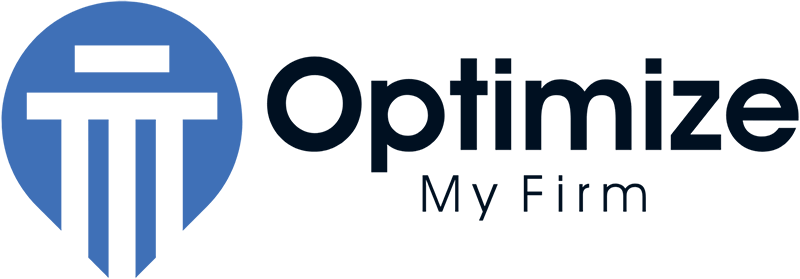Podcast: Play in new window | Download
The Personal Injury Marketing Minute episode #16 is part 4 of a mini-series about marketing personal injury law firms. In this podcast, Lindsey defines and discusses SEM (paid Search Engine Marketing).
If there is one thing that is universally true in marketing, it’s that marketing professionals LOVE acronyms. SEO, PPC, LSA, GMB, SEM, O-M-G IYKYK.
Listen to all episodes or subscribe to the Personal Injury Marketing Minute here: https://optimizemyfirm.com/podcasts/.

Transcript
Welcome to the Personal Injury Marketing Minute where we quickly cover the hot topics in the legal marketing world. I’m your host Lindsey Busfield.
Today we will be talking about the acronym SEM, which is often paired with SEO. However, they are not the same thing, but they are related…sometimes. While there is some debate as to whether SEM includes SEO (like how a square is always a rectangle, but a rectangle isn’t always a square), we are going to be focusing on SEM like it is its own, beautiful little shape.
Let’s dive into SEM for Personal Injury Lawyers 101:
SEM stands for Search Engine Marketing. For the purposes of this podcast (since it is my show, after all) we will further define SEM as paid advertising.
“But Lindsey, we pay for SEO!” Yes, you do, listener – as you should. But that is used to get your website to show up higher in the organic search results.
SEM is more in line with the advertisements you see at the very, tippy top of the Google search results. Since this is a podcast and I can’t show you my screen, take a second to Google “Personal Injury Lawyers Near Me” – pause while you do it, then come on back.
Even though I am in North Carolina, our results should have a similar format.
Local Services Ads:
At the very top, you will see a section called “Google screened” with three lawyers, their pictures, and their rating information. This is called a “Local Services Ad” or LSA – I told you we love acronyms. If you click on one of those lawyers, you will be taken to their Google profile with their phone number. Actually, it is a special phone number that is linked to their LSA account. Every time a prospective client calls this number, the lawyer pays an advertising fee.
Many of our clients LOVE LSA ads. Depending on the market, they can attract several callers per month. In more saturated markets with lots of personal injury lawyers, there are fewer callers. However, Google prioritizes the personal injury lawyer’s budget, reviews, and length of time in business. So, a lawyer who is willing to pay more, has a better reputation and has been around for 25 years is going to show up more than a new firm with a limited budget and no reviews.
As far as cost goes, the price per call can range from $100-300 depending on the market. That being said, one of the best things about LSAs is the ability to dispute any call that isn’t relevant to your business. The LSA calls are recorded and you – or the agency you hire (like Optimize My Firm) can monitor your calls and dispute ones that are SPAM, duplicate leads, or pertain to a non personal injury case.
Google Ads & PPC:
The next section on the page is the PPC ads – Pay Per Click for those who hate all these acronyms. These are the ads that have the word “Ad” next to them and look more like a regular website listing.
With a PPC campaign, you actually have to write the ad, as opposed to the Local Service Ad campaign. So, these can take a little more marketing savvy in order to get good results.
But hopefully by the end of this podcast, you should be able to look at other personal injury lawyers in your area who have PPC ads and evaluate how well they wrote their ad…and hopefully, how you can do it even better!
Here is how it is done:
A PPC ad gives you a specific format to write your ad. Your website and phone number will display at the top of the ad. Next, you get to put in your title and tag line followed by a short area for body text.
Here is where the marketing strategy plays out.
As with all marketing campaigns, you should start with your target audience in mind. For the purposes of this example, we are going to say you want to target more motorcycle accident victims.
With a PPC ad, you can pick which keywords you want the ad to show up for. Rather than selecting “personal injury” or something even more generic like “NC Lawyer” – you will want to build a campaign that is dedicated to – in this case – motorcycle accident terms. So, “motorcycle accident lawyer” or “motorcycle accident claim.”
Next, as you build your ad, make your title and text relate to motorcycle accident victims and what is important to them. I would recommend building your title using this format – “Your Personal Injury Law Firm’s name – Motorcycle Accident Lawyers” – this looks the most professional, gives the important info, and imprints your firm’s name. However, you are limited in how many characters you get.
For the body of the text, you are limited two segments of 90 characters. Keep in mind that your ad might show up different on different screens, so you want to be short and sweet in your ad, but make your target market feel addressed and welcomed.
Here is a good example: Raleigh Motorcycle Accident Lawyer | Proudly Serving Motorcycle Accident Victims in Raleigh | Contact Us for a Free Consultation
Here is a bad, real-life example in my search results: We Always Put the Interests and Well-Being of our Clients First. Contact Us Today. Our firm blah blah blah. They also have their title as “Cary Car Accident Firm – Reach Out Today to Begin”
In the bad example, they don’t identify the target market at all. In fact, they address it to car accident victims. No wonder their phone isn’t ringing…
The last bit on writing ads for PPC is to avoid being cheesy. Many lawyers and legal marketing teams get stuck on the phrase “Get the compensation you deserve.” This phrase is trite, overused, cliché, corny, hackneyed, and downright stale. Break out your thesaurus like I just did and find another phrase.
One last thing you might notice as you examine the PPC ads is the extra information tied to some of the ads. Some might have links to their Free Consultation page or other important information.
Why do they get those features and others don’t? Well, those are called ad extensions. You can set those up when you build you PPC ad. Ad Extensions must be approved and don’t always show, but if Google thinks they will help enhance your ads performance and your AdRank is high enough, they will display more often.
That is all the time we have for today, but if you have more questions about SEM, PPC, SEO or any other acronym you can reach out to me at optimizemyfirm.com.
TTYL!


